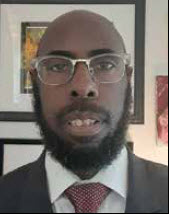 By: Eric Betts
By: Eric Betts
Professor Adam Grant is a bestselling author who specializes in popular science. He is a professor at the Wharton School of the University of Pennsylvania and also an organizational psychologist. He suggests that the phrase “I’m just being honest” is a poor excuse for being rude. Grant is a scholar who has conducted studies on the science of motivation, generosity, original thinking, and rethinking. He has been considered Wharton’s top-rated professor for seven straight years. Additionally, Fortune has recognized him as one of the world’s ten most influential management thinkers for those under 40.
Grant makes an extremely thought-provoking comment in relation to leaders known for candor in their communication strategies. He says, Candor is being forthcoming in what you say. Respect is being considerate in how you say it. Being direct with the content of your feedback doesn’t prevent you from being thoughtful about the best way to deliver it. Rudeness is a disrespect for others that is not expressed directly. What often occurs in the delivery of honest communication is the inability to separate candor from rudeness. Being rude may be considered candid, but the type of candor that successful leaders express is absent of the rude type.
The first five words in the following list are words are synonyms for candor and the last eight are words that are negative words related to candor according to Merriam Webster:
- forthright
- frank
- honest
- open
- overt
- blunt
- ungracious
- unmannerly
- rude
- tactless
- uncivil
- thoughtless
- undiplomatic
Among the last eight words within the list describing negative candor, the word “thoughtless” is particularly revealing. Giving a little more thought of how the communication is delivered may make all the difference. The key is being thoughtful and honest, simultaneously.
However, this does not mean that a leader should retreat in their efforts at honesty and trust building within an organization. Honesty is as important as togetherness; in fact, it is the prerequisite for togetherness. Lorne Rubis is an expert on building corporate cultures, abundance mindset, personal leadership, and business goal setting. He has more than 40 years’ experience advising CEOs from start-ups to well established large corporations in both the private and public sector. Rubis serves as faculty at Harvard University in its Professional Development Division of Continuing Education. Grant agrees with Rubis in his view of respectful honesty within an organization’s teams. According to Rubis, honesty is indispensable and a far better alternative to whispering, hinting, covering up, or placing a false coloring on a negative situation.
Lorne Rubis says that candor and transparency are vital components for establishing trust. Rubis argues that most employees or volunteers can indeed handle the truth or criticism and will in fact welcome it. He adds that it is equally disrespectful to assume otherwise of a team member. It is wrong to assume that team members cannot handle negative facts.
When you lead a team and feel that you need to withhold or “spin” information for “their own good,” If you’ve been around organizations for more than a few days you know there are few secrets (if any). Everyone has a confidant they tell… We whisper but others hear us… We huddle in odd meetings, and people notice… We leave “secret” memos at copy machines, etc. So be straight and candid before the rumor mill creates more uncertainly. More importantly, it’s just the respectful and right thing to do.
Rubis explains how to engage team members with both candor and respect. He advises his students that the key is to address the problem or process rather attacking the person. This means that one can be honest about situations without insulting a team member with rudeness and thoughtless words. Rubis agrees with Grant in stating that leaders should hold themselves personally accountable for being respectful. Many leaders do not realize that they are being disrespectful. Rubis humorously says that it is like spinach in the teeth. Remember that candor works both ways. If those you are leading, and those around you believe or tell you that you have a rude manner, you should believe them, the same way if someone tells you that you have spinach in your teeth. Hiding behind honesty, frankness, or bluntness may make you feel better about yourself, but does not help the overall health of the organization. If you intend to be candid as a leader, be willing to expect candor from others about the nature of your candidness. They welcome honesty, but not insults and condescending words.
Leaders don’t make excuses about potential personal flaws, but they work on themselves daily for their own growth and that of the organization. Let this be the working philosophy of your organization. Honesty can exist without incivility or ungraciousness. It is true that some may not have a generous or gracious personality, but it doesn’t take much to study, attend seminars, or read books on how to effectively communicate as a leader. Any message that is worth communicating is worth thoughtful consideration on how it is to be delivered. Tactless messaging does not work to create an honest or transparent environment. Many will feel intimidated or bullied. They will perform their tasks, but will be limited in their creativity or ideas due to fear. Additionally, the words that loom the largest in Rubis’ philosophy is that respectful communication is not merely a strategy for a success, but it is the right thing to do as we each seek to realize our potential in this life.
By: Eric Betts
Assistant Director, Curtis Coleman Center for Religious Studies and Ethics at Athens State University






